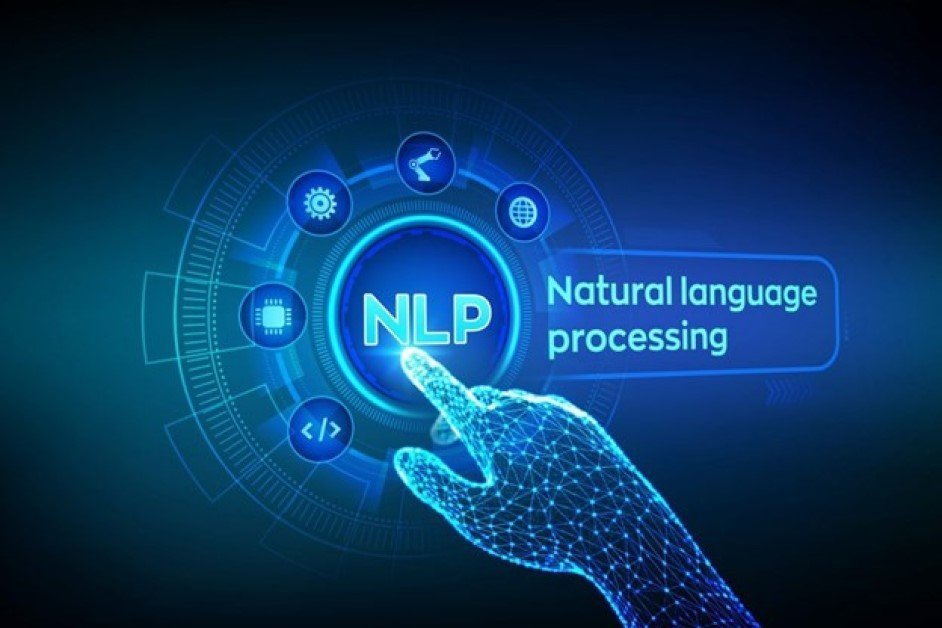AI Careers 101:
Natural Language Processing (NLP) Engineer: Responsibilities & Roadmap


Natural Language Processing, commonly referred to as NLP, is a field at the intersection of computer science, artificial intelligence, and linguistics. It focuses on enabling computers to understand, interpret, and generate human language. NLP Engineers play a crucial role in developing systems that can process and analyze vast amounts of textual data, allowing for applications such as search engines, voice assistants, and sentiment analysis.
The purpose of this guide is to provide an overview of the key aspects of an NLP Engineer’s career, including their salary expectations, primary responsibilities, and the pathway to success in the field. By exploring these elements, individuals considering a career in NLP can make informed decisions about their future and understand the steps required to excel as an NLP Engineer.
NLP Engineer Salary
When it comes to the earnings of an NLP Engineer, several factors can influence the salary offered. These include the individual’s geographical location, experience level, educational background, and the specific industry or company size they work in.
- Geographical location: The cost of living and demand for NLP Engineers in a particular region can have a substantial impact on their salary. Typically, professionals working in metropolitan areas or tech hubs command higher salaries than those in smaller cities or rural areas.
- Experience level: As with most professions, an NLP Engineer’s salary tends to increase with the accumulation of experience. Entry-level positions generally offer lower salaries, while senior roles and positions with managerial responsibilities often provide higher compensation.
- Education and certifications: Holding advanced degrees, such as a Master’s or Ph.D., or relevant certifications in NLP and related fields, can boost an NLP Engineer’s earning potential. Employers often value specialized knowledge and may be willing to pay a premium for it.
- Industry and company size: Different industries may offer varying salary ranges for NLP Engineers. For example, large tech companies and organizations working with massive datasets or cutting-edge technologies are likely to offer higher salaries compared to smaller companies or those in industries where NLP applications are less prevalent.
To give a general idea of salary ranges for NLP Engineers, the following figures serve as a rough guide:
- Entry-level NLP Engineer: $70,000 – $95,000 per year
- Mid-level NLP Engineer: $95,000 – $130,000 per year
- Senior NLP Engineer: $130,000 – $170,000+ per year
These figures can vary significantly based on the factors mentioned earlier. It’s also important to note that NLP Engineer salaries can differ from those of Data Scientists or Machine Learning Engineers, even though the roles share certain similarities.
NLP Engineer Responsibilities
NLP Engineers hold a range of duties and responsibilities that are vital to the development and implementation of NLP systems. Their tasks encompass various aspects of creating, refining, and deploying NLP models, as well as collaborating with team members and ensuring ethical considerations are met.
Core responsibilities:
- NLP model and algorithm development: NLP Engineers are responsible for creating and optimizing models and algorithms that can process and analyze textual data. This requires a deep understanding of machine learning techniques, linguistic concepts, and relevant programming languages.
- Data pre-processing and feature extraction: Before training an NLP model, it’s essential to clean and preprocess the data. NLP Engineers must be skilled in handling and transforming large datasets, extracting meaningful features, and preparing the data for analysis.
- Model training, testing, and tuning: Once the data has been prepared, NLP Engineers train, test, and fine-tune their models to achieve the best possible performance. This may involve experimenting with various techniques, such as hyperparameter tuning or algorithm selection.
- Deployment of NLP solutions: After developing and refining their NLP models, NLP Engineers must deploy these solutions in real-world applications. This involves integrating the models into existing systems, monitoring their performance, and troubleshooting any issues that may arise.
Collaboration and communication:
- Cross-functional teamwork: NLP Engineers often work closely with other professionals, such as data scientists, software engineers, and product managers. Collaboration and effective communication are key to ensuring the successful development and implementation of NLP systems.
- Presentation of findings: NLP Engineers may need to convey their results and insights to non-technical stakeholders, such as clients or executives. This requires the ability to distill complex information into understandable and actionable insights.
- Keeping up with NLP research and advancements: The field of NLP is constantly evolving, and it’s crucial for NLP Engineers to stay current with the latest research, techniques, and tools. This may involve attending conferences, reading research papers, or participating in industry forums.
Ethical considerations:
- Data privacy and security: NLP Engineers must handle sensitive data with care and ensure its privacy and security. This includes adhering to relevant regulations and best practices, as well as implementing robust data protection measures.
- Addressing bias and fairness: NLP models can inadvertently perpetuate biases present in the data they’re trained on. NLP Engineers should be aware of these potential pitfalls and strive to create models that are fair and unbiased, minimizing the potential for discrimination or unfair treatment.
Roadmap to becoming an NLP Engineer
Pursuing a career as an NLP Engineer requires a combination of education, skills, and practical experience. The following roadmap outlines the steps and considerations for individuals interested in joining this exciting and growing field.
Educational Background
- Relevant degrees: A strong foundation in computer science, linguistics, or a related field is essential for aspiring NLP Engineers. Obtaining a Bachelor’s degree in one of these disciplines is an excellent starting point. Many professionals in the field also choose to pursue advanced degrees, such as a Master’s or Ph.D., to deepen their understanding and expertise.
- Mathematics and programming: A solid grounding in mathematics, particularly in areas such as linear algebra, probability, and statistics, is vital for NLP Engineers. Additionally, proficiency in programming languages like Python or Java is necessary for implementing NLP models and algorithms.
Skills and Knowledge Areas:
- Programming languages: Familiarity with Python, Java, or other programming languages is crucial for working with NLP tools and libraries, as well as developing custom algorithms.
- NLP libraries and tools: NLP Engineers should be comfortable using popular NLP libraries and tools, such as NLTK, spaCy, and Gensim, which provide essential functions and pre-built models for various NLP tasks.
- Machine learning frameworks: Experience with machine learning frameworks, like TensorFlow or PyTorch, is essential for training and deploying NLP models effectively.
- Linguistic concepts: A solid understanding of linguistic concepts, such as syntax, semantics, and pragmatics, is key to creating NLP models that accurately process and analyze language.
Certifications and Courses
- NLP-specific certifications: Several organizations offer certifications in NLP and related fields, which can enhance a candidate’s credentials and demonstrate their expertise to potential employers.
- Online courses and resources: Numerous online courses and platforms provide valuable learning opportunities in NLP, machine learning, and related areas. Examples include Coursera, edX, and fast.ai, which offer a wide range of courses taught by experts in the field.
- To see a list of courses that we recommend see our Best NLP Certifications guide.
Gaining Experience
- Internships and entry-level jobs: Obtaining internships or entry-level positions in companies working on NLP projects is an excellent way to gain practical experience and build a professional network.
- Personal projects and open-source contributions: Developing personal NLP projects or contributing to open-source NLP initiatives can help individuals hone their skills, showcase their abilities, and gain recognition within the community.
- Networking and attending conferences: Attending NLP conferences, meetups, and workshops can provide opportunities to learn from experts, discover the latest advancements, and connect with others in the field.
Continuous Learning and Growth:
- Staying updated with industry trends: Keeping abreast of the latest developments in NLP and related fields is essential for staying relevant and competitive in the job market. Regularly reading research papers, following industry blogs, and participating in online forums can help NLP Engineers stay informed.
- Pursuing advanced degrees or research positions: For those interested in furthering their knowledge and expertise, pursuing an advanced degree or research position can be a valuable investment in their career.
- Engaging in mentorship opportunities: Becoming a mentor or seeking mentorship from experienced professionals can facilitate personal and professional growth, as well as contribute to the overall development of the NLP community.
By following this roadmap and consistently striving for growth and learning, aspiring NLP Engineers can build a successful career in this dynamic and rapidly evolving field.
Conclusion
In summary, NLP Engineers play a pivotal role in harnessing the power of natural language processing to develop innovative solutions that improve how we interact with technology. By understanding the factors that influence their salary, gaining insights into their primary responsibilities, and following a structured roadmap to success, aspiring professionals can make informed decisions about their career path in this rapidly evolving field.
As the demand for skilled NLP Engineers continues to grow, it’s essential for individuals to remain committed to lifelong learning, networking, and staying current with the latest advancements in NLP research and techniques. This dedication will not only help them excel in their careers but also contribute to shaping the future of technology and improving our everyday lives.
Daniel is a big proponent of how AI will eventually disrupt everything. He breathes technology and lives to try new gadgets.
You may like


5 Best NLP Courses & Certifications (February 2026)


10 Best Machine Learning Certifications (February 2026)


5 Best TensorFlow Courses & Certifications (February 2026)


5 Best Python Courses & Certifications (February 2026)


4 Best Cloud Certifications (February 2026)


4 Best Data Science Certifications (February 2026)